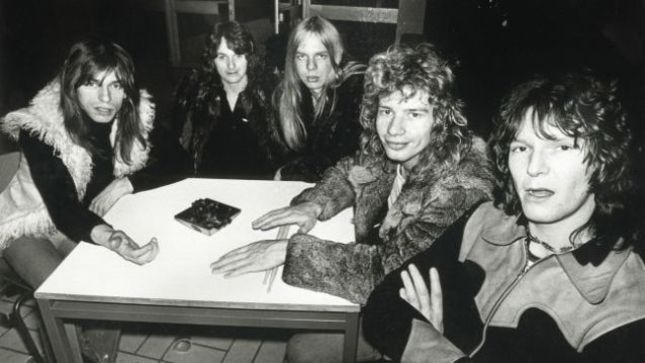Guitarist STEVE HOWE Reflects On Songwriting With YES In The Early Days - "We'd Take Simplistic Things And Complicate Them A Little Bit For Our Amusement"
April 25, 2020, 4 years ago

Speaking with Classic Rock, YES guitarist Steve Howe reflected on the band's early days and their creative process. Following is an excerpt from the interview.
Q: Why did you and Jon (Anderson / vocals) become the real songwriting force, not, say, you and Chris (Squire / bass)?
Howe: "Chris was a great writer, but you really didn't sense he wrote a great deal. So his output was lower than Jon's and mine. And Rick (Wakeman / keyboards) didn't write for YES, really. Bill Bruford had a weird way of writing because he'd write ideas on the piano, although he was a drummer. So, the way you could write in YES wasn't that you went home, and you came back with some written music with words on it. Not at all. You just could sit in a room and go: 'I got this, I got this; put that over there, and let's just go to that.' And then somebody at the same time said: 'No, we need a riff here.' The band would actually invent music, a lot of it, through that method, where it was purely spontaneous in the room. Of course, you had to force your music across, otherwise somebody else would change it, and it wouldn't be what you wanted. It was a creative interplay."
Q: Would you and Jon work on your own to write, and then present some ideas?
Howe: "Well, we did do that. But amazingly, we did most of it on the road. Jon and I would be like, 'Do you want to come to my room? I've got this song.' And we just started collaborating in that sense, that we could both share ideas. I've even got cassettes where I play him stuff, and he goes, 'Oh, that's really good. Have you got anything else?' And I'd play him something else. 'Oh, you got that? Let's use that.' I was writing melodies, didn't care whether they were sung or played. So there were a lot of musical ideas, and Jon had some left-field ones. Sometimes it was great to have Jon's simplicity.
What YES did was take simplistic things and complicate them a little bit, for our amusement. Sometimes we'd take the chords out and just play riffs. So the band had songs, melodies, riffs, three-part harmonies - a technical proficiency high enough for anybody to spontaneously say: 'Why don't we do something like that?' and we would get there."
Read the complete interview here.











